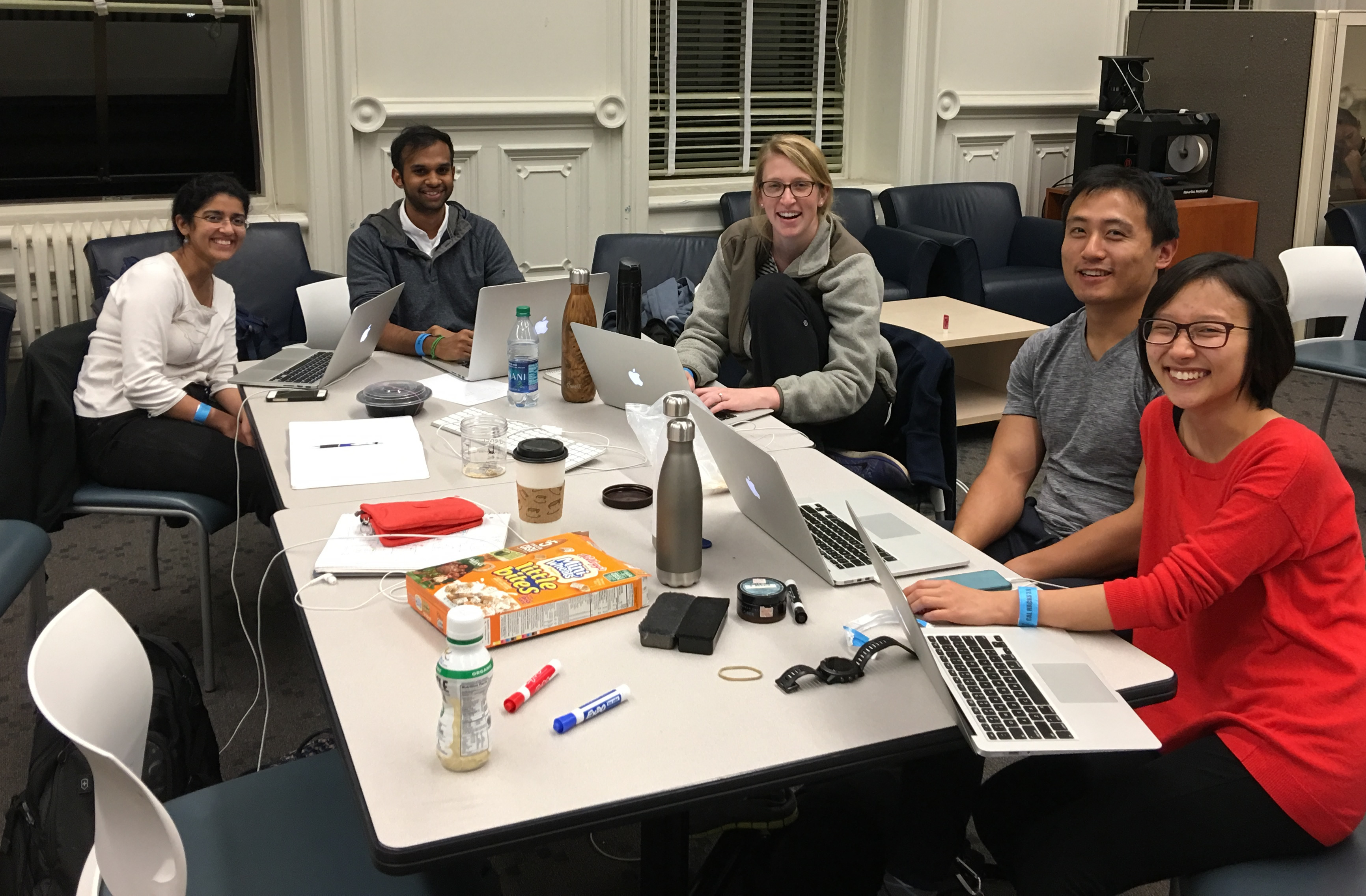At the recent Cal Hacks 3.0 hackathon, a team of I School students developed a predictive analytics tool to predict patient dropout from clinical trials. The tool, called ClinSense, helps researchers manage patient relationship and improve patient retention. The project won the prize for Best Potential Startup Hack.
Team members were Yiyi Chen, Shannon Hamilton, Priyanka Patki, Vikram Reddy, and Edward Yip, all first-year students in the School’s MIMS program.
The five were all came to the School of Information with the common goal of looking for ways to bring innovation and improvements to health and medicine. Teammate Ed Yip worked in the life-science industry for a decade before starting the master's degree program, and could vouch for the industry experts’ collective frustration with dropouts from clinical trials.
“The reasons for patient dropouts are very well established, and yet there hasn’t been a product in the market that leverages these reasons to develop relevant metrics,” the team explained. “Industries like healthcare and education have been adopting the use of predictive analytics to predict patient cancellations and student dropouts, so we were absolutely convinced that the same application could be used with clinical trials.”
“We all felt deeply passionate about the possibility of preventing a drug that could save the lives of millions of people from being rejected due to patient dropouts,” said Yip.
The hackathon was held in Cal’s Memorial Stadium over the three-day Veterans’s Day weekend. Teams of UC Berkeley students and unaffiliated developers had 36 hours to bring their ideas to life. The organizers provided free food and drink for all participants over the weekend, plus professional developers to serve as mentors. In 2015, the Cal Hacks 2.0 hackathon set the world record for the largest student hackathon, with more than 2,000 participants from across California and beyond.

The I School team built their web app with Flask and SQLite for the back-end framework and Materialize for the front-end. The five had previously worked with each other on projects in multiple I School courses, including Natural Language Processing, Information Organization Lab, and User Interface Design and Development, so they already had a natural rapport and had learned to trust each other and rely on each other’s capabilities.
After designing and building their prototype and submitting it online, the team was invited to pitch their product to someone they thought was a fellow Berkeley student. Only after completing the presentation did they realize they were actually talking to the hackathon’s startup judge! “It turned out to be for the best, because we were able to be in our most relaxed state without feeling nervous,” said Yip.
As winners of the “Best Potential Startup Hack” prize, the team was invited to lunch with Mar Hershenson, managing partner of Pear Venture Capital.
The team is applying to a summer accelerator program and exploring ways to launch their prototype as a full-fledged startup.










